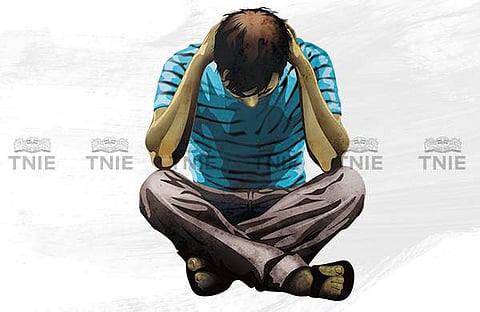

KOCHI: Two years ago, after the birth of his girl child, Roshan (name changed) experienced a spurt of anxiety and stress and often had to rein in a short temper. He had dismissed it then, as men usually do, but later, after talking to friends and experts, it dawned on Roshan that he was likely going through postpartum depression. Yes, postpartum depression (PPD) affects men too.
According to a study by the National Institute of Health, US, eight to ten per cent of men and one in eight women suffer from PPD. However, only the cases that affect women are discussed or given much thought - likely because of PPD’s presumed association with all the hormonal changes that a woman has to undergo in childbirth.
According to Dr Arun B Warrier, a professor of psychiatry at the Government Medical College in Thiruvananthapuram, PPD or postnatal depression can also affect men due to factors associated with childbirth and parenting.
“Financial responsibilities after childbirth, anxiety about how to care for a child or concern about becoming a good parent can also cause PPD in men,” Dr Arun said. According to him, being well-prepared is key. PPD can be minimised greatly by practising discipline, sharing responsibilities, and healthy sleep patterns during pregnancy and after.
Roshan pointed out that social stigma prevents male partners from openly admitting their anxieties and worries to their spouses and others. He said this taboo does not even give room for a conversation about PPD in men.
“Expressing emotions is not often encouraged in men. However, talking to people about these concerns is the easiest way to resolve them. When I approached psychologists, many denied that PPD affects men. Lack of awareness is another issue,” Roshan said.
According to Smriti M, a clinical psychologist at the Wellness Clinic in Kochi, this growing conversation about PPD stems from men embracing their emotions. “Men have learnt to identify and express their feelings. It is encouraging. Even older men have realised that what they experienced back then, when their child was born, was likely a similar situation,” Smriti said.